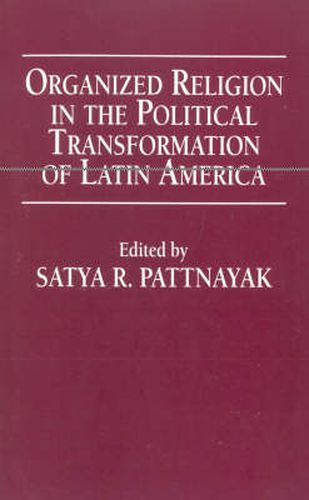Readings Newsletter
Become a Readings Member to make your shopping experience even easier.
Sign in or sign up for free!
You’re not far away from qualifying for FREE standard shipping within Australia
You’ve qualified for FREE standard shipping within Australia
The cart is loading…






This book discusses how the competitive environment of Latin America’s social life has facilitated religious innovation in different regional and national settings. Pattnayak argues that organized religion has responded admirably to change and competition and will survive well in the period of increasing democratization of Latin America. In addition, the author shows how religious change that focuses on community organization, mobilization, and education of the citizenry carries wider legitimacy than ordinary political strategies. Readers of this book will benefit from its wide coverage of the Catholic and the Protestant churches and its definitive statements about the political capability of religious communities. An excellent text for students in courses on religion and politics, social change, social movements, and state-society relations. University libraries, persons interested in church-state relations in Latin America, churches and parishes that have branches in Latin America, and professors and scholars of history, sociology, anthropology, political science, and religious studies will all benefit from this concise and definitive look at religion and politics in Latin America.
$9.00 standard shipping within Australia
FREE standard shipping within Australia for orders over $100.00
Express & International shipping calculated at checkout
This book discusses how the competitive environment of Latin America’s social life has facilitated religious innovation in different regional and national settings. Pattnayak argues that organized religion has responded admirably to change and competition and will survive well in the period of increasing democratization of Latin America. In addition, the author shows how religious change that focuses on community organization, mobilization, and education of the citizenry carries wider legitimacy than ordinary political strategies. Readers of this book will benefit from its wide coverage of the Catholic and the Protestant churches and its definitive statements about the political capability of religious communities. An excellent text for students in courses on religion and politics, social change, social movements, and state-society relations. University libraries, persons interested in church-state relations in Latin America, churches and parishes that have branches in Latin America, and professors and scholars of history, sociology, anthropology, political science, and religious studies will all benefit from this concise and definitive look at religion and politics in Latin America.